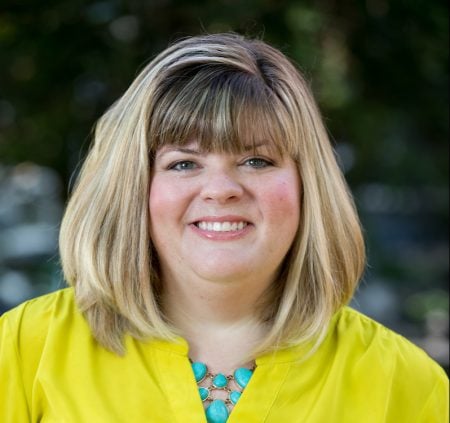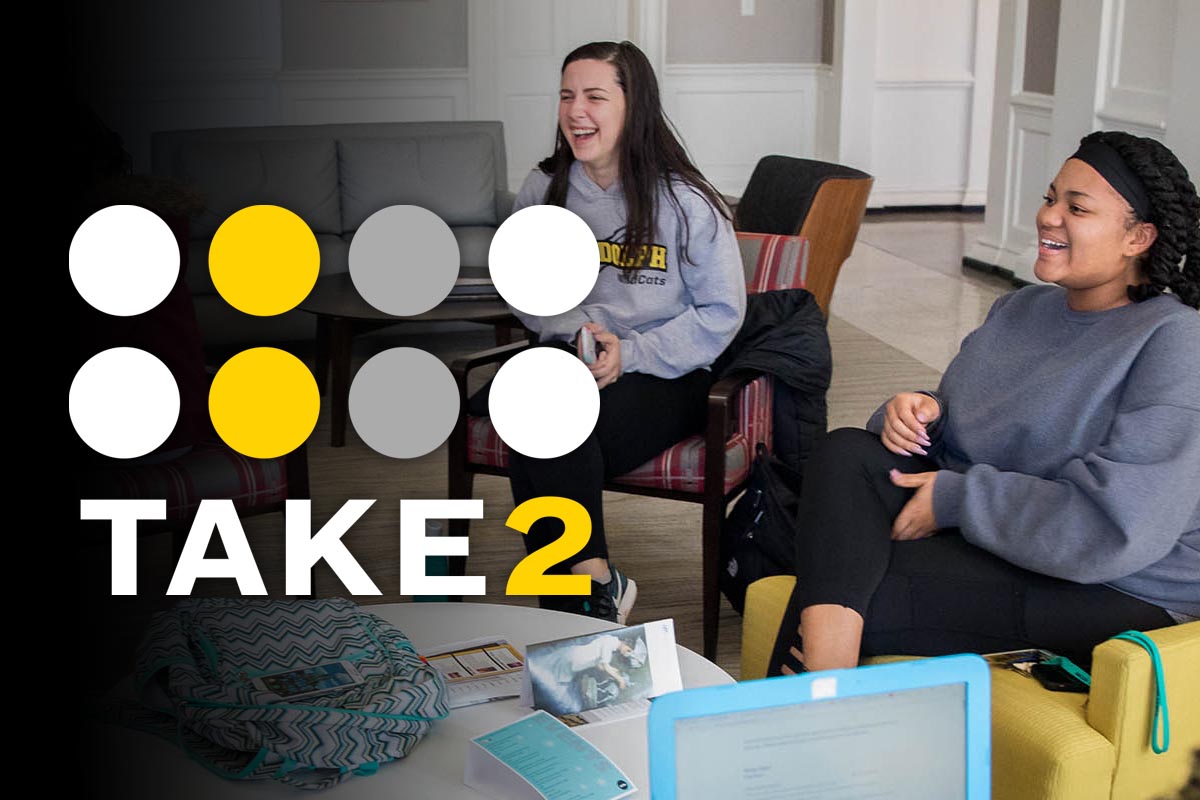Q&A with new faculty: Crystal Howell

Crystal Howell
Randolph College’s 2018-19 academic year is officially underway, and there are several new faces among the faculty.
Education professor Crystal Howell is one of the new additions:
Where are you from originally and what is your background?
I am from West Virginia—you’ll probably hear me call it Best Virginia—but I’m delighted to be living here in the other Virginia! I grew up in Lincoln County, a rural county in the southern coalfields. I attended Marshall University, where I majored in English and Spanish and minored in classical studies. I stayed at Marshall to earn my M.A.T. and become certified to teach English and Spanish in grades five through adult. I then spent six years teaching middle and high school Spanish in a traditional, face-to-face classroom. During this time, I completed a master’s degree in English and was also a member of the leadership team for Coalfield Writers, a rural satellite site of the National Writing Project. In my seventh year of teaching, I began working for the West Virginia Virtual School. As an online Spanish teacher, I worked with middle school students in the most remote areas of the state. This experience was exciting, interesting—and often very frustrating. I decided to pursue my Ph.D. in Curriculum and Instruction at Indiana University in order to better understand the experiences of teachers who shift between teaching online and teaching face to face.
I come to Randolph with experience teaching undergraduate teacher candidates as well as K-12 practitioners at the graduate level. I love teaching, and I love helping others deepen their pedagogical knowledge and develop their instructional skills. In my primary research line, I investigate the embodied experiences of teachers who move back and forth between online and face-to-face classes. In traditional classrooms, our bodies are a vital part of our teaching practice—we use them to convey and gather information, to connect with students, to manage behavior. Our bodies also tell others about us, revealing (or sometimes blurring) race, gender, (dis)ability, and other parts of who we are. What happens when we move to an online teaching context? Is the body still important? I work from a feminist point of view, so I am particularly interested in how gender is a part of these questions and their answers. I am also interested in and write about multicultural education, service learning, curriculum development in out-of-school contexts like camps and afterschool programs, and qualitative research methodologies.
What attracted you to the job at Randolph?
I am very excited to work with students over the duration of their educator preparation program. In the past, I rarely got to see what kind of teachers my students became by the end of their program. We worked together for a semester, and then they were gone. Here at Randolph, I’m looking forward to working closely with our undergrads and M.A.T. students from beginning to end.
What classes are you teaching this fall?
This fall, I’m teaching EDUC 101, a general education course for students who are considering becoming teachers. I am also teaching two courses in the M.A.T. program, including a course on instructional methods and the reflective teaching seminar teacher candidates take while completing their student teaching.
Describe your teaching style. What can students expect out of your classes?
Flannery O’Connor wrote, “I write because I don’t know what I think until I read what I say.” I think this sentiment is true for many of us, and in my class, students will find we do a lot of writing to learn (that is, low-stakes writing) in addition to traditional higher-stakes writing. Classrooms are one of the places where we learn to be engaged, informed citizens, so you’ll often find students discussing readings and contemporary issues in the field in order to develop their ability to read critically, form arguments based on evidence, and participate in meaningful deliberation with others. I value the process of revision—I’ve yet to produce anything that didn’t go through many, many drafts! So students can expect that we will work together to make sure their finished work demonstrates that they’re meeting course goals and objectives.
What are your initial impressions of Randolph and its students?
After just a few days on campus, I’ve found Randolph’s students to be engaged and enthusiastic! Students here seem committed to creating an inclusive community, both in and out of class.
What sorts of hobbies or fun activities do you enjoy outside of the classroom?
I love to cook, garden, and quilt. I also like preserving some of the things I grow; last year’s cornichons were a particularly successful venture! I like to read in my downtime, mostly fiction. John Irving, E.L. Doctorow, and Hillary Mantel are some of my favorite authors. You may have already seen me running or walking around campus in the early morning or late evening. I’m not fast, but I’m dedicated!
Tags: Crystal Howell, curricular studies, education, faculty, Kara Matthews, liberal studies, new faculty
